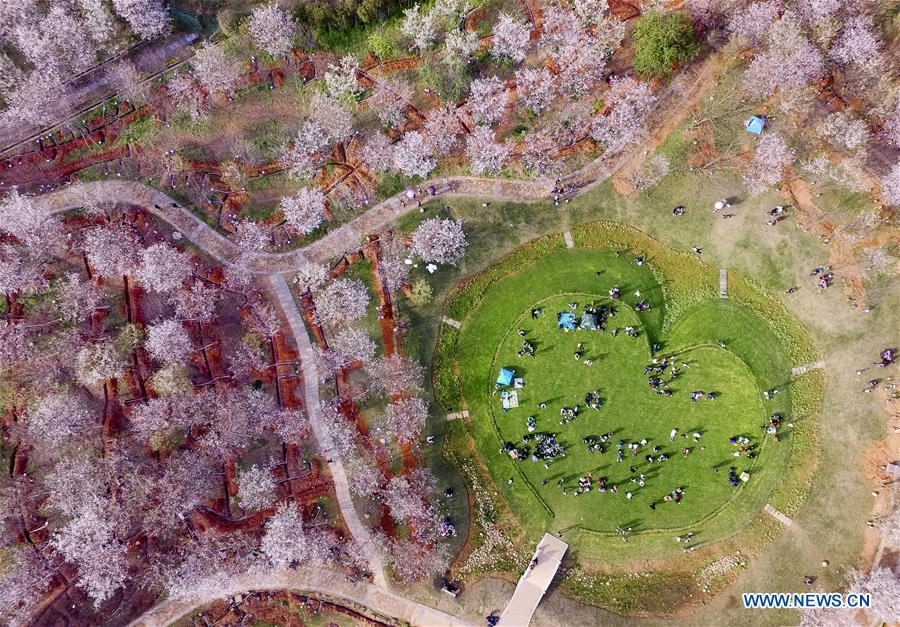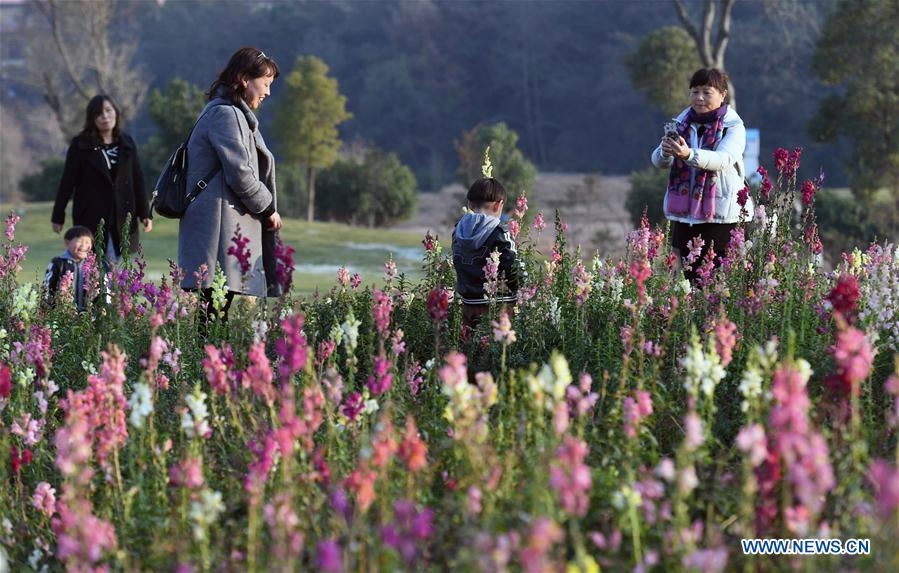(This article provides the final six of the writer’s 12 highlights of China’s year as a global environmental leader. For Part 1 please click here: Year-end Review: Recollections of Green Year 2017– Part 1)
Seventh - Smart City
In December 2016, China and Norway relaunched their bilateral diplomatic relationship after a six-year freeze. This helped fulfill a long-held aspiration to take China’s clean revolution message to the Nordic country.
I had the privilege of visiting Norway in September when I, for the first time, witnessed and experienced the beauty of nature there and, more importantly, the innovation in clean technologies.
Oslo Innovation Week will become a must-go event for colleagues in related sectors. And the Nordic Edge Expo, leads in smart city innovation, with technology and industry displays, as well as workshops and networking. It has the potential to become a powerful bilateral collaborative platform to jointly advance solutions. As a keynote speaker at the exposition, I shared China’s smart and clean city revolution.

Aerial photo taken on March 26, 2017 shows a heart-shaped rest area surrounded by cherry blossoms in Fenghuanggou scenic spot of Nanchang County, east China's Jiangxi Province. /Xinhua Photo
Aerial photo taken on March 26, 2017 shows a heart-shaped rest area surrounded by cherry blossoms in Fenghuanggou scenic spot of Nanchang County, east China's Jiangxi Province. /Xinhua Photo
Eighth - US-China Bilateral Summits
The relationship with the US remains China’s most important internationally. The presidents of the two nations, through two visits, have established some level of trust and personal relationship so that the channel of communication remains open.
One of the highlights of the bilateral relationship is collaboration in energy and environment, which covers climate change at both the local and corporate level. While many expressed disdain and anger over Trump's announcement of the US' withdrawal from the Paris Agreement, state governors have stepped up their commitment to the environment. Governor Jerry Brown of California and Michael Bloomberg, the former New York mayor, have become American signposts of continued committed actions to tackle climate change, providing a level of confidence to others globally.

Photo taken on May 23, 2014 shows Longzhou Danxia landform in the morning light, northwest China's Shaanxi Province. /Xinhua Photo
Photo taken on May 23, 2014 shows Longzhou Danxia landform in the morning light, northwest China's Shaanxi Province. /Xinhua Photo
Ninth - Fourth Industrial Revolution
Professor Klaus Schwab wrote a bestseller in 2016 – "The Fourth Industrial Revolution," which focuses on trends and the impact of digital, physical and biological technologies coming together.
We definitely all feel the impact today as robots, AI, machine learning, autonomous vehicles, cloud computing and 3D printing, among others, are becoming part of our lives. There are deeper issues to be concerned about, such as the the effect machines will have on people’s jobs and privacy, who controls our digital IDs and what shall guide the new rules of governance.
To address such daunting challenges, the World Economic Forum (WEF) organized 35 future councils, with 840 leading experts around the world, to focus on solutions and design a better future. The WEF is rolling out a new report – "A Handbook to Help Leaders Shape the Future of the 4th Industrial Revolution." I sit on the Future Council of Environmental and Natural Resources Security where members gather to examine emerging technologies and their applications in addressing environmental security risks.

People walk on a walkway at Jinlinwan community to spend leisure time at Qujing City, southwest China's Yunnan Province, Dec. 24, 2017. /Xinhua Photo
People walk on a walkway at Jinlinwan community to spend leisure time at Qujing City, southwest China's Yunnan Province, Dec. 24, 2017. /Xinhua Photo
Tenth - Ban of Fossil Fuel Vehicles
China’s Ministry of Industry and Information Technology made an official commitment to ban sales of fossil fuel vehicles in the coming decades.
China joins the list of countries that have made similar commitments, including Norway, France, the UK and India. Though no clear deadline year has been set, many are guessing the year 2030, when China has committed to peaking its emissions of greenhouse gases.
We all know that transportation contributes a large amount of the emissions in China. If China is to deliver its commitment of peaking emissions, transportation has to be effectively addressed. China joining the list of countries also increases the speed of global transformation towards clean transportation due to the size and scale of its market.

Photo taken on Dec. 24, 2107 shows the small waterfalls at Jinlinwan community where people visit to spend leisure time at Qujing City, southwest China's Yunnan Province. /Xinhua Photo
Photo taken on Dec. 24, 2107 shows the small waterfalls at Jinlinwan community where people visit to spend leisure time at Qujing City, southwest China's Yunnan Province. /Xinhua Photo
Eleventh - Water Security
I spent lots of time this year on water security. Globally, I was a member of the Expert Panel for the High-Level Panel on Water (HLPW) under the leadership of the UN Secretary-General and World Bank president, to draft the Preamble and Principles of Valuing Water.
Through two writing sessions, this piece of work was successfully completed and submitted to the HLPW. At the regional level, as vice chair of the governing council of Asia Pacific Water Forum, I played my role in contributing to the design and organization of the third Asia Pacific Water Summit, jointly with the government of Myanmar.
Organized every five years, the third summit was delivered successfully at a time when water security threatens regional sustainable development and when the UN Water for Sustainable Development – International Decade of Actions is to officially kick off in 2018.
The Yangon Declaration: The Pathway Forward, adopted at the end of the summit, reflects the consensus and shared commitment to the implementation of water-related sustainable development goals.
Twelfth - Global Recognition of China’s Contributions
The year started with Dr. Li Junfeng, former director of the Climate Change Center of the National Development and Reform Commission, winning the Zayed Future Energy Lifelong Contribution Award. It will end with three winners from China being recognized as UN Environment Champions of the Earth – Hebei Saihanba Forest Farm, Wang Wenbiao, chairman of the board of the Elion Group, and Hu Weiwei, founder and CEO of Mobike. What an achievement! And what an achievement year for China!
This is perfectly aligned with the message delivered by President Xi Jinping at the Davos Forum back in January when he laid out China’s vision of a community with a shared future for mankind and the nation’s role and leadership in global environmental governance. Besides wisdom and determination, Chinese are also taking action to contribute to China’s own ecological civilization and global sustainable development.
What a great year! Cheers for and kudos to China and its people for their contribution to a better future. I look forward to an even greater 2018.
(Wu Changhua is China/Asia director, Office of Jeremy Rifkin; member, Future Agenda Council of Environment and Natural Resources Security, World Economic Forum; vice chair, governing council of Asia-Pacific Water Forum and vice chair, World Green Design Organization. The views expressed in part one of this articles are his own. The article reflects the author’s opinion, not necessarily the views of CGTN.)






